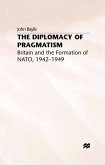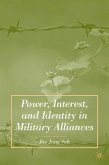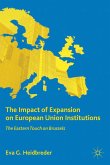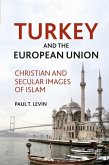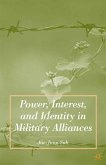Following the disintegration of the Soviet bloc, many Central and Eastern European Countries launched a vigorous 'return to Europe' campaign, which primarily focused on accession to NATO and the European Union. By 2007, ten countries became members of the Euro-Atlantic community, personifying the long-awaited reunification of Europe.
"In a provocative and well-documented comparative analysis of NATO and EU enlargements, La as provides a compelling explanation for the timing and scope of institutional expansions. This book engages the most salient debates in contemporary IR theorizing - from historical legacies to the role of norms, interests, and identities." - Christine Ingebritsen, University of Washington
"La as offers an insightful account of the role of history and morality in European integration specifically and international politics in general. He provides an in-depth analysis of how domestic actors in both East and West negotiated the fundamental transformation from behind the Iron Curtain to within the European Union, and in so doing, offers a fresh critique of the legacy of the Cold War on EU and NATO enlargement." - David Galbreath, University of Aberdeen
"This book makes the novel argument that the EU and NATO were enlarged primarily because key Western states felt guilt about earlier abuse suffered by the states of Central and Eastern Europe during the black trinity of Munich, Molotov-Ribbentrop, and Yalta. The book is certain to provoke a spirited response from defenders of interest and norm-based theories." - Wade Jacoby, Brigham Young University
"La as offers an insightful account of the role of history and morality in European integration specifically and international politics in general. He provides an in-depth analysis of how domestic actors in both East and West negotiated the fundamental transformation from behind the Iron Curtain to within the European Union, and in so doing, offers a fresh critique of the legacy of the Cold War on EU and NATO enlargement." - David Galbreath, University of Aberdeen
"This book makes the novel argument that the EU and NATO were enlarged primarily because key Western states felt guilt about earlier abuse suffered by the states of Central and Eastern Europe during the black trinity of Munich, Molotov-Ribbentrop, and Yalta. The book is certain to provoke a spirited response from defenders of interest and norm-based theories." - Wade Jacoby, Brigham Young University




